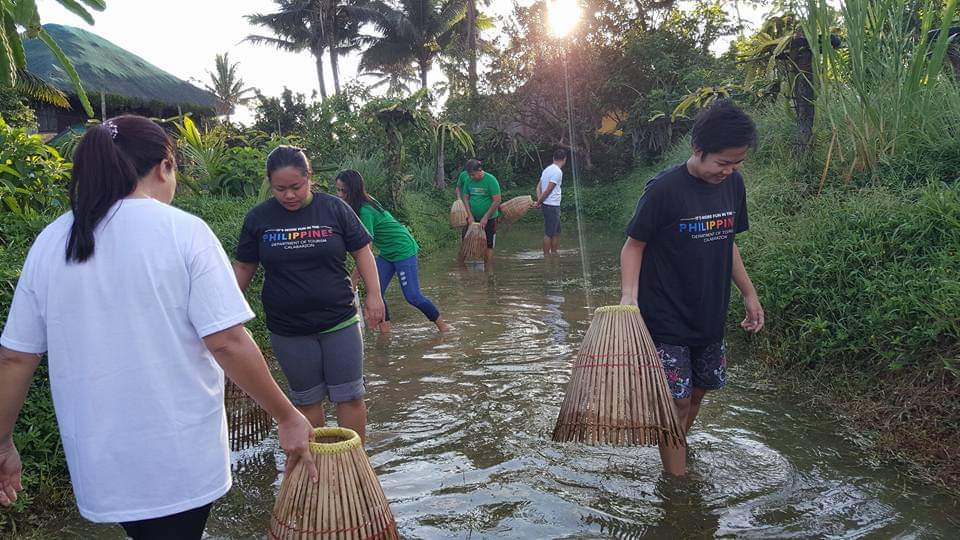Farm tourism shifts gear amid pandemic
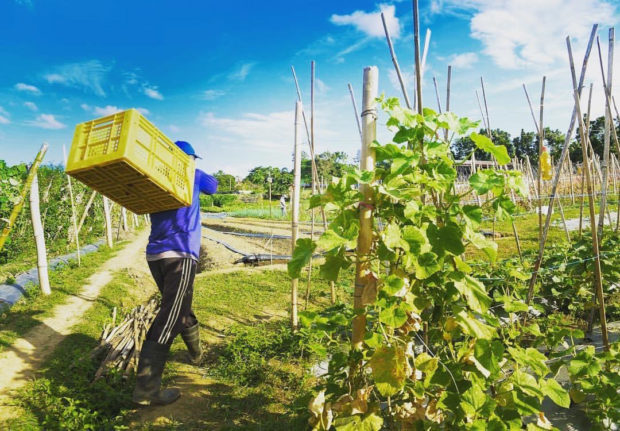
TWIN CHALLENGE Farm owner Mike Maranan of Taal Maranan’s Farmville in Taal, Batangas, says he is facing the twin challenge of coping with the aftermath of Taal Volcano eruption in January and absorbing the impact of the COVID-19 pandemic. But he needs to keep the business going to provide jobs to local farmers. —PHOTO COURTESY OF TAAL MARANAN’S FARMVILLE
When the new coronavirus disease (COVID-19) pandemic restricted leisure travel, agritourism lost its core offer — the actual farm experience.
Without the tourists, farm tourism operators had to repurpose their amenities, like converting swimming pools into fish ponds, to increase food production.
They turned to online sale of fresh harvest, fertilizers and other farm inputs, while lectures and agricultural training previously held in actual interactions in farms and classrooms were converted into webinars.
“[Farm tourism] was accelerating. Then came COVID and suddenly, it’s all downhill,” said Josephine Costales, president of Philippine Farm Tourism Development Association.
It was only last year when the Philippines was recognized as among the world’s top farm tourism destinations, thanks to its natural resources and the hospitality of Filipinos that put the country at par with sites across Taiwan, Hawaii, Tuscany, Mallorca, California and Brazil.
Article continues after this advertisementIt also wasn’t too long ago since the Farm Tourism Development Act of 2016 was enacted and gave agritourism the push it needed.
Article continues after this advertisementBut lockdowns and movement restrictions to curb the spread of the virus threaten to reverse these gains, at least “until we [re]gain the public’s confidence to travel,” Costales said.
“Whatever [pandemic] impact there is on other tourism products, it’s the same on farm tourism,” said Chris Morales, head of the Department of Tourism (DOT) National Farm Tourism Program.
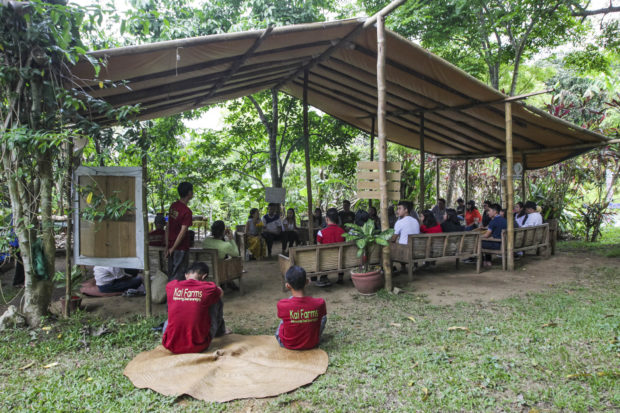
STARTING THE DAY In this photo taken in 2019, a group of visitors attends a morning briefing and meditation at Kai Farms in Silang, Cavite. —LEO M. SABANGAN II
Losses
Morales said his office was still waiting for the National Economic and Development Authority report on the actual losses of farm tourism, but added that this particular sector had more potential to survive the crisis than the others (like hotels and resorts) because of its capacity for food production.
As of June, the DOT had accredited 198 farm tourism sites in the Philippines, 41 of which are in Central Visayas, which covers the provinces of Cebu, Bohol, Siquijor and Negros Oriental, and the independent highly urbanized cities of Cebu, Mandaue and Lapu-Lapu.
In Calabarzon (Cavite, Laguna, Batangas, Rizal and Quezon), the region closest to Metro Manila, the number of accredited farms so far, is down to nine, from 33 in 2019.
Some operators have temporarily shut their operations since there are no tourists yet, Morales said.
“That’s why the idea is for operators not to focus only on [offering] ‘farm experience’ but also on selling their produce … Definitely, sites that are not food-based will have a hard time recovering,” he said.
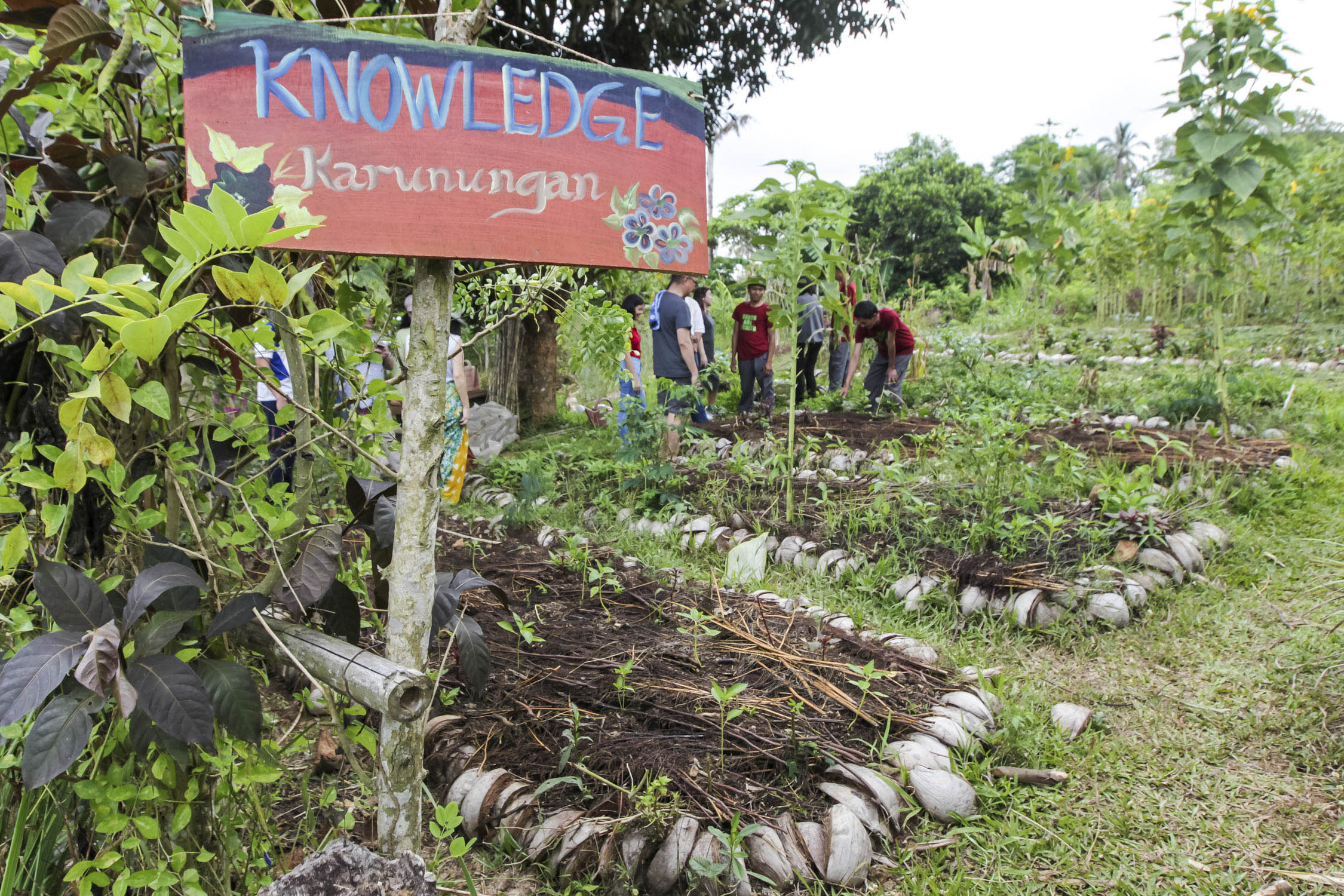
OUTDOOR LEARNING Kai Farms, one of the leading farm tourism and wellness sites in Cavite province, gives visitors a chance to learn the basics of agriculture in its gardens. —LEO M. SABANGAN II
Niche market
Farm tourism sites—each with an area of 3,000 to 5,000 square meters—cater to families and organizations, each with its own niche brand, like vegetable farming, organic agriculture, mushroom farming, or flower gardening.
They offer activities like fruit picking, “farm-to-table” dining, and hands-on lectures and live farming demos. Others have amenities for overnight stay.
“We used to have about 30,000 guests in a month. But now, you’re lucky if you have at least two guests [in the restaurant] in a week,” said Costales, who owns and runs Costales Nature Farm in Majayjay town in Laguna.
Operators are “merely surviving” by selling their harvests online, also since the pandemic has propelled the demand for healthy and fresh food, she said.
With most people staying indoors and the trend of urban gardening, farmers found the opportunity to sell organic fertilizers and soil nutrients.
But the wholesale supply, for instance, of herbs and spices and tons of other high-value crops like lettuce, had sharply gone down after restaurants and mall supermarkets were shuttered.
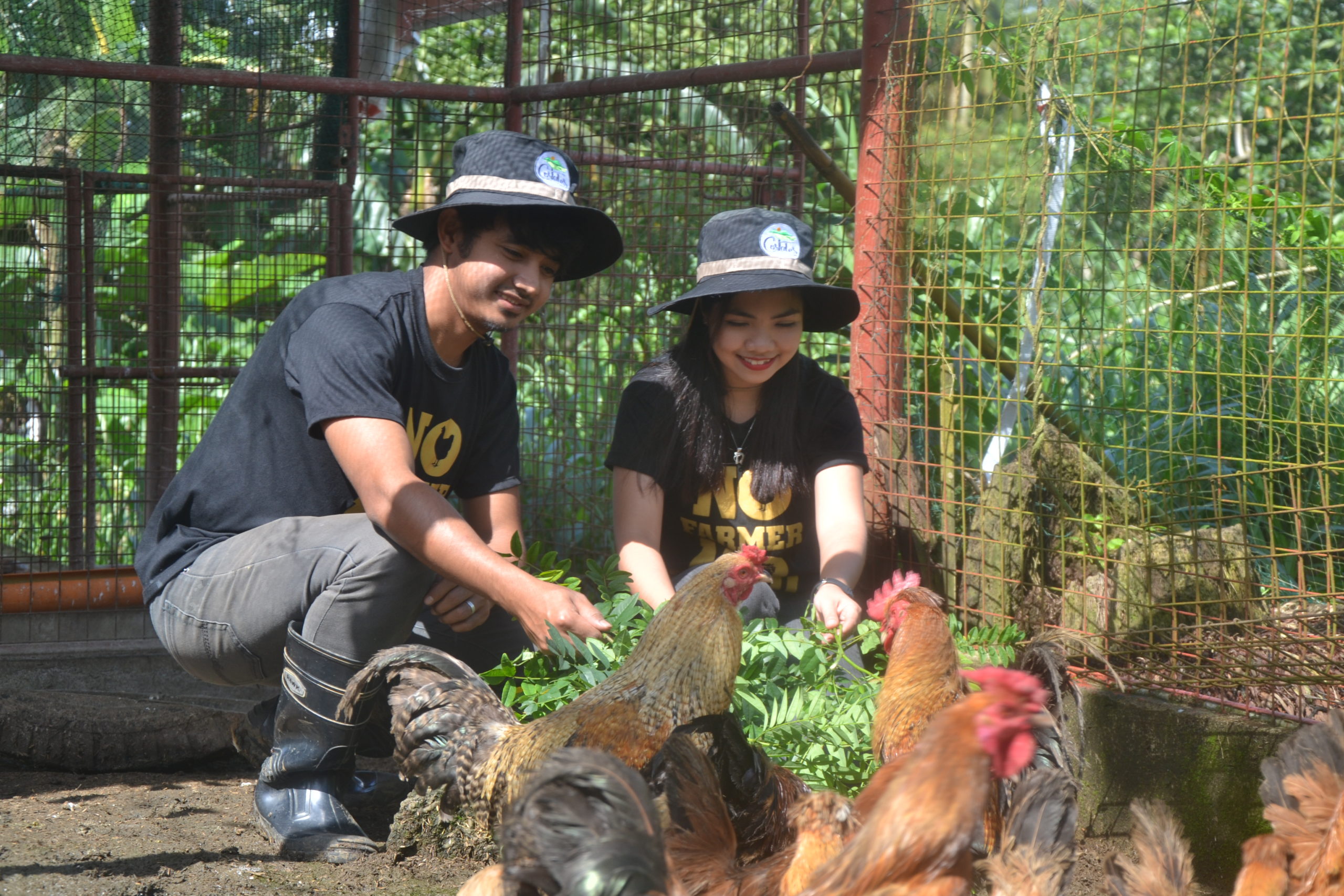
CHICKEN FEED A couple feeds free-range chickens at Costales Nature Farms in Laguna. —PHOTO COURTESY OF COSTALES NATURE FARMS
‘Travel bubbles’
Costales said farmers had to shift to producing lowland vegetables like pechay, bok choy and mustasa that require more space in the farm and higher costs in terms of farm inputs and production.
The Department of Agriculture has provided free seedlings and tilapia fingerlings, while the DOT promotes the local produce through online trade fairs.
In June, the DOT also partnered with the ride-hailing company, Grab Philippines, for the door-to-door delivery of agricultural products.
Costales said agritourism was banking on “travel bubbles,” a novel concept to rekindle trade and tourism wherein neighboring “virus-free” countries would allow unrestricted travel, a way of establishing partnerships between adjacent regions and farm sites.
“We’re hoping that once travels are allowed, people would prefer to go [to farm tourism sites] not only because we are outdoor and open-air, but since the pandemic has made us all realize the relevance of health and wellness,” she said.
For more news about the novel coronavirus click here.
What you need to know about Coronavirus.
For more information on COVID-19, call the DOH Hotline: (02) 86517800 local 1149/1150.
The Inquirer Foundation supports our healthcare frontliners and is still accepting cash donations to be deposited at Banco de Oro (BDO) current account #007960018860 or donate through PayMaya using this link.
